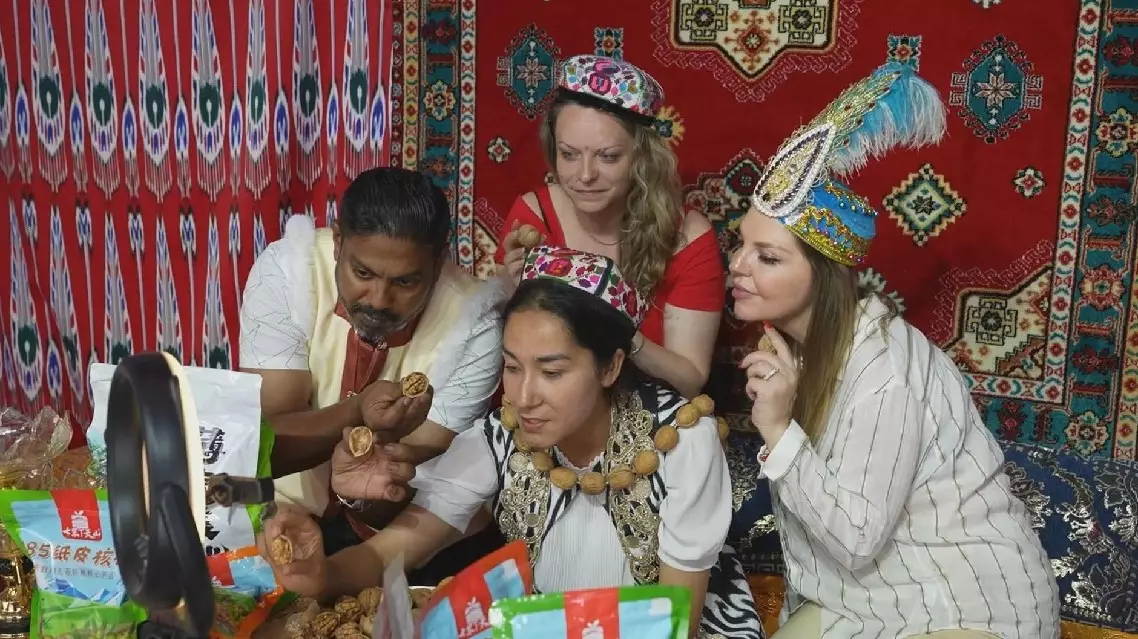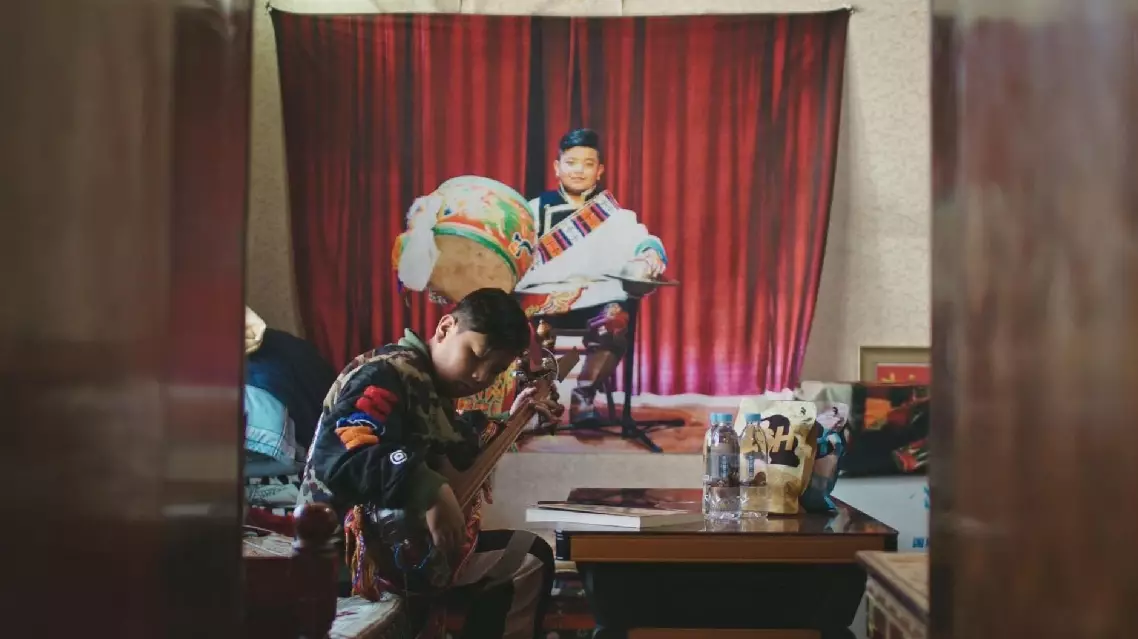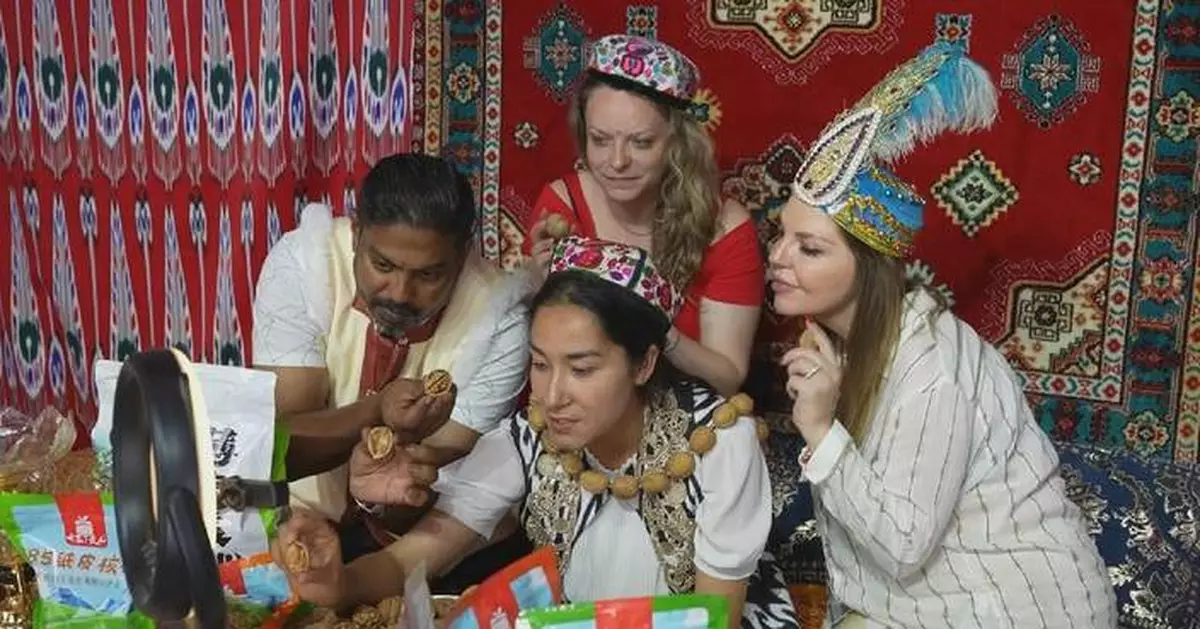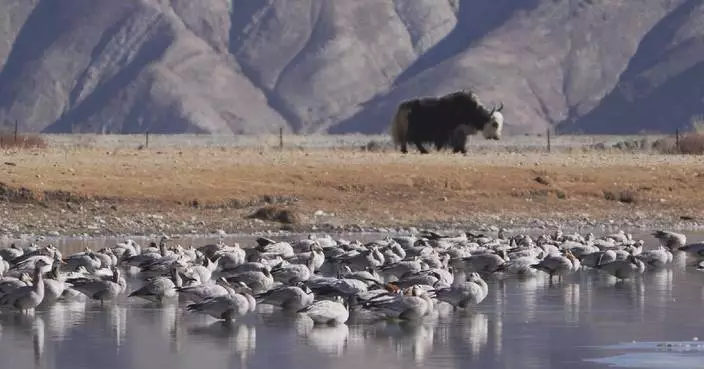E-commerce is helping farmers in the Aksu Prefecture in the landlocked region of Xinjiang in northwest China to overcome geographical obstacles and sell their produce to consumers across the country.
As the westernmost region of China bordering Kazakhstan and Kyrgyzstan, Xinjiang is thousands of kilometers away from the eastern markets, a despairing distance for local fruit farmers.
"Our apples [used to] make it to domestic markets through traditional ways. The problem is that they have to be picked before they're ripe because of the long transport time," said Zhou Hu, owner of Aksu Qiguo E-commerce.
Zhou runs a company that sells fruits purchased from local farmers to online consumers in live-streaming shows.
"Previously, it might take five to seven days for the apples to arrive. Now with e-commerce, it takes two to three days," Zhou said.
As the business thrives, Zhou has helped raise the income of local farmers.
"We offer farmers 20 percent more of the total price than traditional buyers. That has a direct impact on farmers," Zhou said.
Seizing the opportunity brought about by e-commerce development, Rizwan Guli Erkin opened a store named Ga Beng Cui Dry Fruit Store on Douyin, the Chinese version of TikTok, to help her parents sell paper shell walnuts.
"The walnuts are grown by my parents. They only know how to grow them but don't know how to sell. So after college I've helped them with sales," she said.
Another one who has spotted this opportunity and returned home to build local businesses is Zheng Haozhe, CEO of the Future Village, an accommodation business in Onsu County of Aksu.
"I went to the U.S. when I was 14. I started from the ninth grade in high school. The U.S. has given me a very good education, but now, I feel very grateful to come back to my country and keep building my country, especially in a border area in the western area where things are not very developed," Zheng said.

E-commerce helps Xinjiang farmers reach markets across China
With dramyin lute and cymbals in hand and dressed in colorful traditional costume, 17-year-old Tenzin Norbu is among the proud youngsters in southwest China's Xizang Autonomous Region who have been helping preserve the centuries-old Tibetan opera, a multifaceted representative of Tibetan art and cultural heritage. Considered a living fossil of Tibetan culture, Tibetan opera is a comprehensive art combining folk songs, dance, storytelling, chant, acrobatics and religious performance. It was included on the UNESCO Representative List of the Intangible Cultural Heritage of Humanity in 2009.
Tenzin grew up listening to Tibetan opera along with his grandmother. The beat of the drum marked the rhythm of his childhood and quietly planted the seed of a dream.
The teenager leads a youth Tibetan opera troupe and guides his peers onto the very stage they once only dreamed of. He named it "Phudor Youth Tibetan Opera Troupe", because "Phudor" means "dream" in the Tibetan language.
"There are about 24 members in the troupe," said the teenager.
Tenzin once received a very special invitation to perform Tibetan opera for the opening ceremony of an art festival in Lhasa.
Although both their parents and teachers felt it's important for the children to be exposed to traditional culture from a young age, they didn't want it to affect their schoolwork.
The performance they were getting ready for was the first Sweet Tea House Art Festival, the troupe's very first public appearance. It's a rare opportunity for the children -- one too precious for them to pass up. But with their parents growing anxious about preparation for the performance eating into valuable study time, the children opted to rehearse in secret at weekends. Tenzin's family runs a tailor's shop. His father, who is hearing- and speech-impaired, is a superb tailor, while his mother helps him out by dealing with customers. Tenzin enjoyed Tibetan opera with his grandmother during childhood and later learned more about it from his uncle.
"Whenever I'm not feeling good, I'll take out the dramyin lute and the cymbals. When I hear the drumbeat, I get a feeling of elation that's simply indescribable," he said.
When Tenzin finally stepped onto the stage at the festival, he noticed that his parents were not in the audience. "My parents didn't have time to come to see my performance. But they always support me. They work hard every day, also for my sake. So, I'm happy whether they were here or not as long as I can keep performing Tibetan opera," said the youngster, believing that his passion for Tibetan opera will last a lifetime.

Childhood dream takes local boy onto Tibetan opera stage






















































